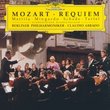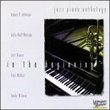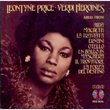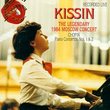| All Artists: Ludwig van Beethoven, Richard Goode Title: Beethoven: The Complete Sonatas [Box Set] Members Wishing: 0 Total Copies: 0 Label: Nonesuch Release Date: 10/5/1993 Album Type: Box set Genre: Classical Styles: Chamber Music, Forms & Genres, Sonatas, Historical Periods, Classical (c.1770-1830), Romantic (c.1820-1910), Instruments, Strings Number of Discs: 10 SwapaCD Credits: 10 UPC: 075597932829 |
Search - Ludwig van Beethoven, Richard Goode :: Beethoven: The Complete Sonatas [Box Set]
![Beethoven: The Complete Sonatas [Box Set]](https://nationalbookswap.com/cd//l/31/1231/6011231.jpg) | Ludwig van Beethoven, Richard Goode Beethoven: The Complete Sonatas [Box Set] Genre: Classical
It's interesting that the great Beethoven sonata cycles areseldom the ones by the big-name virtuosos. Horowitz never attempted one. Neither did Rubinstein. Ashkenazy recorded them all, but with only partial success. Richte... more » |
Larger Image |
CD DetailsSynopsis
Amazon.com essential recording It's interesting that the great Beethoven sonata cycles areseldom the ones by the big-name virtuosos. Horowitz never attempted one. Neither did Rubinstein. Ashkenazy recorded them all, but with only partial success. Richter never managed all 32 works at one time, and Gilels died before completing his cycle. The most successful complete recordings--Schnabel, Kempff, Arrau, and Backhaus--are all by pianists with a solidly intellectual mindset, however powerful their technique. Goode joins this select company, turning in performances of uncompromising integrity and musical strength. Of course, his reputation as a musician's musician precedes him: here is a player sensitive to Beethoven's every nuance, presenting the composers thoughts with exemplary clarity and taste. This is the Beethoven cycle for the '90s. --David Hurwitz Similarly Requested CDs
|
CD ReviewsA Very Fine Set of Beethoven's Sonatas kek5 | Westerville, Ohio USA | 04/25/2001 (5 out of 5 stars) "I have found that when approaching so substantial a body of work as Beethoven's piano sonatas, it is useful to have at least one complete set to serve as a reference, an anchor if you will, to bring coherence to the whole. Sometimes it is difficult to get the big picture when listening to several artists interpreting different sonatas. And in approaching Beethoven's piano sonatas, especially as a complete cycle, it seems a bit silly to start debating whether this set or that is the "best". When you have complete cycles and/or substantial recordings from every A-list pianist from Artur Schnabel to Daniel Barenboim, the questions really not which is "best" but whose approach is most suited to your tastes.Richard Goode's set is firmly classical (as opposed to romantic) in all ways, including the sound of the piano (emphasizing the pianoforte aspects of the instrument). So if you are looking for playing that emphasizes the wilder, revolutionary aspects of the music, this is not the set for you. Goode chooses instead to emphasize the music's heritage (and debt) to Haydn and Mozart by concentrating on line and structure. To put it another way, Goode chooses to look backwards for inspiration, rather than forwards. As my own personal tastes favor the classical to the romantic, his approach suits me perfectly.Personally, I find this set most satisfying. And while several other reviewers here seem to feel this set is somewhere between boring and awful, it should be noted that Gramophone, The Penquin Guide and The Rough Guide all consider this to be one of the best sets in recent years. Does this mean I no longer listen to Brendel, Schnabel, Jando, O'Conor or Gieseking? Absolutely not, nor will it keep me from buying some Solomon, Gilels and Kempff as the mood strikes me. The point is that I have an anchor, and a pretty good one at that." Transparent, consistent and beautifully recorded Ian Muldoon | Coffs Harbour, NSW Australia | 12/29/2002 (5 out of 5 stars) "My favourite interpreter of these works remains Daniel Barenboim and his first complete cycle, though I have had much pleasure over the years from Mr Arrau and Mr Brendel. With Barenboim I found a joy and energy so why Mr Goode? I find that Mr Goode seems to bring less "personality" to his interpretation in that he seems to intrude less between the music and the listener and I get the impression the music is speaking directly to me. This may be a nonsense as I am not a musician myself, nor have I studied music. In addition, I believe the piano on this recording sounds sweeter, and more round with no idiosynchratic effects emphasised by recording techniques. I use a Meridian 506 CD player through a quality Australian made Hi Fi system. Finally, I find there is a satisfying constency of excellence between the early and late sonatas even though there will be times where I might prefer Mr Brendel's playing of, for example, Opus 109, though I find Mr Goode's playing of Opus 2 Number 3 perhaps beyond compare - again, a matter of taste. Let me just say in concluding, I cannot imagine being without Mr Goode's Beethoven sonatas after living with them over the past year. An essential purchase." A Novice's Opinion Damian C. Smith | Salt Lake City | 03/21/2000 (5 out of 5 stars) "This is the view of a novice who just loves Beethoven. I don't pretend to know the musical ins and outs of things, and frankly don't even understand what some reviewers are saying. My only qualification is that I love these Beethoven Sonatas better than about any other classical music, and I play a few of them myself as well. I also have bought a couple of other sets of the Beethoven Sonatas, so I have some basis for comparison. For my money, Richard Goode's set is the best, start to finish, that I have heard. I enjoy his clean, precise and effortless style. He doesn't not use excessive pedal, and the music is never mushy or indistinct. The dynamic variations and interpretations are always interesting--I never tire of hearing them. Goode's virtuosity on some passages is positively thrilling. The recording quality is excellent. If I had to keep just one set, this is my choice."
|

 Track Listings (12) - Disc #1
Track Listings (12) - Disc #1






